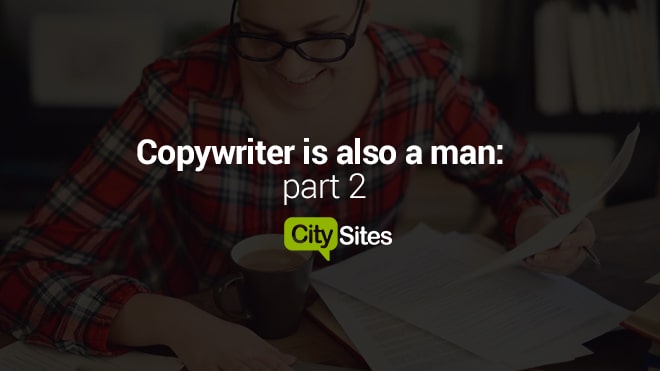
A few articles ago we examined with you copywriter errors related to the visual part of the text: what quotation marks to put, how the hyphen differs from the dash, and the like. Today, we will delve deeper into the topic and look at common mistakes that indicate that you urgently need to open the rules of the Russian language and repeat the grammar.
This article will be interesting to those who write articles themselves on their sites, conduct social networks, etc. Of course, a professional copywriter who has been working for 10 years does not need an article, but for beginners and those who are developing their own website, their own company and from scratch, it will be useful.
So, let's go!
- " -t" and "-t." This is a very simple rule. He is able to remember even one who has never studied Russian at school. Once again, we repeat the rule and put all the points on the "i":
- The question "What to do?" - Repeat again.
- The question "What is doing?" - Repeats again.
- How to write “to” or “what” . Verification is also quite simple. It is necessary to discard the “if” part, if the proposal does not make sense (what would you do if you became the director of the company? / What would you do if you would be the director of the company?), Then in this case “would” be a particle, and “what” - pronoun. Accordingly, we write separately. If the meaning of the proposal changes (he wants to become a director in order to improve his life), that “so” is written together, since it is a union.
- Everyone’s loved ones “within” and “within” . Oh, how simple it is! When it comes to the time period, it’s only “during”, and when we talk about the river, the sea and everything connected with the flow of water, the ending is –– (there is something fascinating in this flow of the river ...) Russian language rules also sometimes bewitching, is not it?
- The most favorite feature, of all, and mine, including. Capitalizing on the “You” to the audience. It turns out that this is permissible only in the case of business correspondence with the client (and what a sin, and in this case it is no longer always relevant). And in the case of addressing an entire audience of readers, such a topic is already unacceptable, so I apologize, but from this day on, I will address you either to “you” or with a small letter.
- Too many artistic turns. Here you need to understand the styles of text. If we do a selling text, then it is very inappropriate to go into epithets and artistic metaphors. They have nothing to do with selling texts and making a profit. I think that in more detail we will discuss this topic in subsequent articles.
- Cliche. No one, hear, no one likes the same hackneyed phrases! We have a whole article about the cliché, what they are now, how to replace them and how to be further. Therefore, we will not dwell on this point. Recall that the cliche is: “In the modern world ...”, “A young developing company with excellent working conditions offers ...”, “The best product, modern technologies ...” and similar expressions that no longer carry any meaning.
I really hope that the text was useful to you. You will write the following text and make it perfect.
